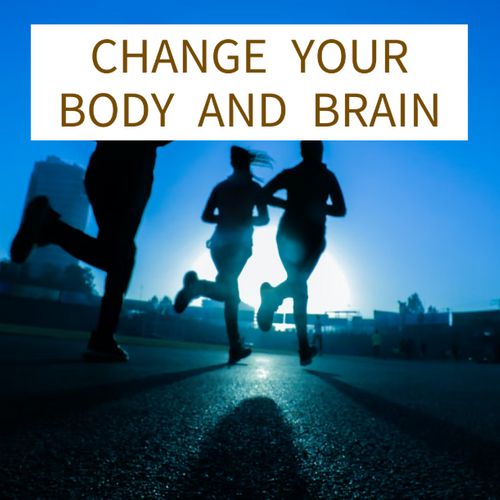How does exercise change your body and brain?
Mar 12, 2022 · 2 mins read
0
Share

I noticed one common thing among people who exercise regularly at my nearest park. They are energetic, excited, and look younger. I observed more striking differences in my dad's attitude on his business issues with and without regular exercise.
Save
Share
Exercise is known to be a miracle drug and if researchers had a pill that had the same effects as exercise, they would be billionaires. Regular exercise changes you physically and mentally. And it helps you avoid diseases by increasing your immunity.
Save
Share
Body: Mitochondria fuels the muscles, and regular exercise increases its size; there is an increase in overall VO2 max (this is the rate at which the body transfers oxygen to your muscles for fuel). Both mitochondria’s size and VO2 max can make you run longer and faster.
Save
Share
Brain: Neuroscientist Wendy Suzuki discusses the science of how working out boosts your mood and memory - and protects your brain against neurodegenerative diseases like Alzheimer's. It increases the volume of your hippocampus. It has a crucial role in learning and memory.
Save
Share
Exercise is the most transformative thing for your brain. It increases the blood supply to the brain, promotes the development of new brain cells, and improves attention function. Charles Duhigg, in The Power of Habit, says exercise is a keystone habit (has multiple good effects)
Save
Share
Mood: Hormones released naturally by the body after exercise are serotonin, endorphins (which helps counter stress), Protein- Brain-derived neurotropic factor (BDNF), and Noradrenaline. These feel-good hormones prevent a dopamine deficit that results in depression, and low mood.
Save
Share
Heart: Exercise increases the size and strength of your heart. It pumps more blood, and heart muscles become stronger, reducing the chances of a heart attack.
Bones: They become denser, avoiding osteoporosis.
Sleep: You experience deeper sleep with less stress.
Save
Share
Finances: A person with weaker immunity will have to make multiple trips to the hospital. Immunity and endurance increase with exercise, indirectly reducing your medical expenses. Your confidence increases, and you approach life positively and make better financial decisions.
Save
Share
Lifespan: Research dating back to the late 1980s consistently shows that aerobic fitness may help extend lives. Doctors recommend 150 to 300 minutes per week of moderate aerobic activity (walking, running, swimming, biking), or 75 minutes of vigorous activity, or a mix of both.
Save
Share
Final Note: You only live once, and this is your chance to live a happier and healthier life. Inculcating exercise in your daily routine will move you towards a protective life with fewer diseases and better tolerance for stress, life problems, and viruses like Corona.
Save
Share
0